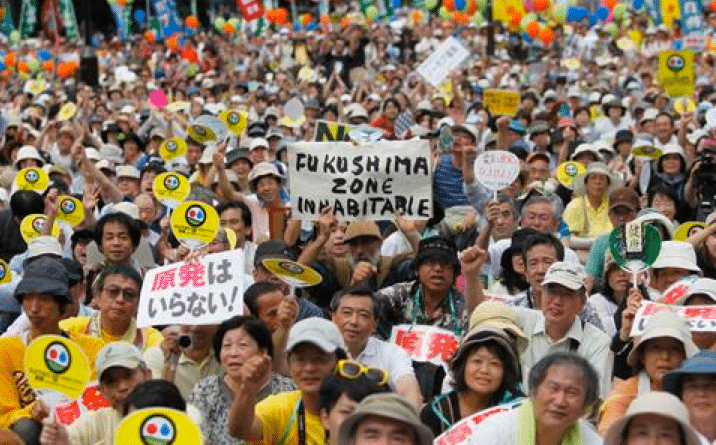Russia sees South Africa as a potentially lucrative market for nuclear power plants
Rosatom, the Russian state-owned conglomerate that is building nuclear power plants in Russia and around the world, has confirmed that it is closely monitoring the public discussion that is taking place in South Africa over the newly released integrated energy plan.
South Africa’s draft energy plan isn’t being presented to the public as a fait accompli. Instead, the draft provides information about several likely scenarios, all of which would include the 9.6 GWe of new nuclear plant capacity described in the 2010 version of the plan. There is some variation in the timing for the completion of the first new units depending on selected strategies for optimizing costs and balancing completion delays against the increased quantities of pollutants that would be emitted by delaying the introduction of new nuclear.
In the base case, the first new nuclear plant would be starting by 2026 with the first tranche of a continuing construction program being completed by the early to mid 2030s. In that base case, nuclear energy would provide 29.5 GWe by 2050. All of the capacity would have to come from plants that are not yet built. South Africa’s only operating nuclear units were completed in the second half of the 1980s and are not expected to still be operating in 2050.
There is a scenario in the plan called a “nuclear relaxed” case that allows a delay in the currently proposed building plan based on the slower than expected growth in electricity demand. This case was considered available for study because, unlike the rest of the capacity additions identified in the 2010 plan, there are not yet any signed commitments to begin construction.
If this scenario becomes the selected plan, the delays will be limited. Even in the most pessimistic assumptions of demand growth, new nuclear will need to begin coming on line by 2030 instead of 2026 so that there is not a shortage of generation capability. The plan acknowledges that the delay doesn’t provide much additional time, given the long lead times required to plan and construction nuclear power plants.
In the nuclear relaxed case, the plan acknowledges that certain climate and air pollution targets will be missed as a result of continuing to rely on dirtier power sources for a longer period of time.
The plan authors worked hard to provide the public with information about costs, employment, pollution, fossil fuel dependency, water usage and, crucially in a country with historical development inequalities, access to reliable electricity.
Russian Advantages
Russia already has a firm presence in South Africa’s nuclear sector; Tenex, a subsidiary of Rosatom, has been supplying fuel to the Koeberg nuclear power plant for two decades.
Unlike most of the other nuclear plant vendors interested in being picked to supply South Africa all or part of its desired 9.6 GW (probably 6-9 units), Rosatom has a complete and running example of the design that it would be most likely to bid in any future tender in South Africa.
That reactor Novovoronezh 6 is a Generation III+ VVER 1200/392M with a nameplate capacity of 1114 MWe and a passive cooling capability. It was connected to the Russian power grid in August 2016.
Rosatom also has the advantage of a strong order book that includes 42 units so far. That order book makes for an attractive sales pitch from the company to participants in its supply chain. They can see numerous repeat purchases, making it worthwhile to make the investments in quality control, design engineering and material processing capabilities required to be an approved supplier.
Other Competitors
Rosatom will not be alone in trying to make committed nuclear plant deals with South Africa. Westinghouse and Areva NP have long had a presence in South Africa; the existing reactors at Koeberg were built by Framatome, one of Areva’s ancestor companies. Both Westinghouse and Areva have several modern units under construction, but neither of them have completed any of their Generation III or Generation III+ reactors yet. There are still unknowns to be discovered.
South Korea’s Kepco, which is currently building four of its APR-1400 reactors in the UAE should also be a strong contender. Like Rosatom, Kepco’s modern export reactor design, the APR-1400, has a complete, running model to show to prospective customers. That unit, Shin Kori 3, was connected to the grid in January 2016, so it has nearly a years worth of operating experience to share.
All of the potential vendors must be paying close attention to the public discussion about the size and timing of what could be another large nuclear building program.
Note: A version of the above was first published on Forbes.com under the headline Russia Is Eager To Add South Africa To Its Impressive Backlog For New Nuclear Plants. It is published here with permission.




The Chinese would like to have a share too.
Rosatom has an advantage in running a large-scale education program both for operators and regulators of target countries. It’s incredibly useful for countries without any existing nuclear industry.
The Chinese reactors are probably cheaper, but then it means almost zero participation of local contractors.
South Africa is interesting to Rosatom not only as a customer, but also as a bridgehead to the continent.
One *very big* advantage of Rosatom is it’s financing options. It has offered many countries to supply about 50% of the financing. They are also potentially option to take back the used fuel, and handle it in Russia, alleviating a major source of concern for nuclear newcomers.
About Framatome, it is actually 100% of the reactor building operation of Areva (it includes some nuclear activities initially from Siemens, but that merger was before the creation of Areva), together with Cogema that was doing fuel handling, it’s the core of Areva (and is now being sold to EDF as Areva NP).
It’s interesting to note that Russia provides financing in roubles (since most of the loan has to be exchanged into roubles and spent buying Russian equipment), while the debt has to be repaid in dollars.
The Russians appear to be aware of the pitfalls of today’s S. Africa and have structured their bid to avoid them. Dan Yurman reports:
The corruption is expected, but Russia is probably on top of that too and will cut the big players in while preventing lower-level graft from affecting anything important.
The big deal is the control of energy assets. Russia doesn’t trust the S. Africans (who are allowed to have jobs under BEE) to run the plants correctly or even safely and thus be able to repay all the loans. Russia bypasses that by having its own people do the operations even at the cost of wounded pride. Ownership by Moscow makes nationalization or other theft a whole lot more difficult.
It looks to me like Rosatom knows what it’s doing.
For the Turkish project they’re offering well over 50% and they’re running the plant, just selling the electricity at a set price.
While there’s much to admire in the technical capabilities in the West and Russia I think the biggest ‘lesson learned’ for the first two decades of this century will be the advantages of having a single point of contact to handle the whole nuclear project. Contrasting Russia’s success with Areva’s troubles with the Finnish build is frankly embarrassing. It’s not technically a nuclear problem so much as a problem with corporate culture in the west that’s always looking to restructure companies to get a quarterly boost at the expense of failing to provide a stable corporate structure to run a large project through.
Well, certainly Rosatom is doing better than Areva. But their record is far from perfect. Their last reactors (Novovoronezh-2-1 and Beloyarsk-4) have found important delays. Others, like Leningrad-2-1 and Leningrad-2-2, are very delayed, almost as Areva’s EPRs. And, finally, we find very embarrassing projects like the Baltic NPP (a power plant with no consumer doesn’t seem very smart) and the Academic Lomonosov (that changed dockyard, multiplied its cost and Rosatom didn’t know where to install it).
In summary, I like Russia’s long term plan, how they deal with customers and how they’re evolving the technology. But corruption, lack of funds and embarrassing decisions are big setbacks.
Greetings
The export arm of Rosatom is certainly well done.
Yep. They’re about to sign contract on the construction of 4 reactors in Egypt.
Egypt seems likely to be one of the more successful examples. The Arab world in general is dysfunctional, but doesn’t seem to have any issues with hiring outside expertise when they need it. The civil and chemical engineering work at Ras Laffan in Qatar was almost entirely foreign (I know one of the top guys on a big project there, he said the country’s name was pronounced “gutter” and deserved it), and IIUC so is a lot of the operations staff in the oil industry in Arabia.